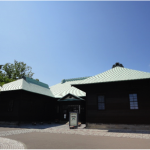
Town Commemorates Convicts, by Minako Sakata
At the end of August, I visited Tsukigata, a small town in Hokkaido where the Kabato Central Prison was located from 1881 to 1919. The town was established in the year when the prison opened, and named after its first director, Kiyoshi Tsukigata. This town has unique sites that show the history of Hokkaido as […]
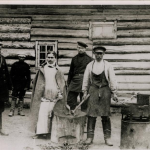
The Carceral Archipelago panel at the Fourth European Congress on World and Global History, 4-7 September, 2014
During the first week of September, members of our European Research Council funded project, Carceral Archipelago, attended the Fourth European Congress on World and Global History, held in Paris at the École Normale Supérieure. While at the Congress, a number of the project’s researchers had the exhilarating opportunity of presenting aspects of their research on a shared […]

Reconsidering Southern African Studies from the Indian Ocean
“Reconsidering Southern African Studies from the Indian Ocean.” This challenge underpinned two wonderful days of discussion at the University of the Western Cape last week. As a conference, we wanted to explore what the burgeoning Indian Ocean historiography and literature means for southern African studies; including how land and sea might come together, in our […]
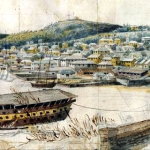
The Convict Hulks of Bermuda
I have long been interested in Bermuda. Like the island that I studied for my PhD thesis, Mauritius, it has no indigenous population. It was settled during the age of European expansion, and developed using indentured servants from Europe and African slaves. In Mauritius the call for a new form of unfree labour in the […]

Looking for convict heritage
By Eureka Henrich, CArchipelago Project Researcher I grew up in Sydney, conscious as any Australian school child of my city’s 18th century origins as a penal colony. At primary school we learned the stories through song, such as ‘Bound for Botany Bay’ (narrated by forlorn transportee who warns those back home in England not to […]

Of Ainu Women and Russian Prisoners: Listening for the Voice of the Other
In my research on the penal colony of Sakhalin, I recently stumbled across two photographs I found to be particularly interesting. Both are images of indigenous women who lived in the eastern Russian empire during the late nineteenth century. Although the photographs hint that the women’s lives were vastly dissimilar, both represent an indigenous response […]
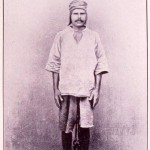
Towards an Evolutionary History of Penological Information in Modern Japan
By Takashi Miyamoto, CArchipelago Project Researcher The history of modern prisons in Japan started with efforts to translate information on penology from western countries and their colonies. Kangokusoku Narabini Zushiki (Prison Rules with Figures), the first prison regulations written by Ohara Shigeya in 1872, reflected the information he obtained during his tour to Singapore […]
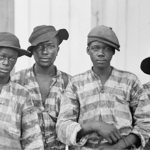
“What Is History For?” Thinking about forced migration and its aftermath
Three days of incredible discussions at NYU Abu Dhabi. “How Migration Makes Meaning” brought together a small group of historians, anthropologists, writers, curators, and creative practitioners of film and photography, to discuss the convergences and coalescences of movement, mobility and circulation around and across the Atlantic and Indian Ocean worlds. Our interdisciplinary focus reaped rich […]
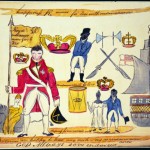
How Migration Makes Meaning
At the weekend, I travel to the UAE to participate in ‘How Migration Makes Meaning: A Conference on Slavery in the Atlantic and Indian Ocean,’ an event hosted by NYU Abu Dhabi. I am looking forward to a productive few days, and the opportunity to work through collectively the intellectual trajectory of connections between Atlantic […]
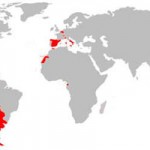
What if the Philippines and Guinea belong to America?
In the context of the Carceral Archipelago project, my research addresses the circulation of convicts to and within colonial and post-colonial Latin America, in connection to other (“free” and “unfree”) labour flows and other types of punishment. The focus lies on convict transportation to colonial military fortifications (presidios) and post-colonial penal colonies, and the chronology […]

Recent Comments